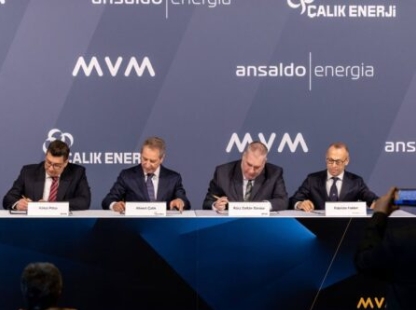
Owned by MVM Tisza Erőmű Ltd., the power plant will feature two blocks with a total capacity of 1000MW upon completion. It is expected to supply approximately 7,500GWh of electricity annually to Hungary’s power grid, supporting the country’s energy needs. The facility will be built on the site of a decommissioned power plant, leveraging existing infrastructure to meet growing electricity demand and facilitate renewable energy integration.
Károly Mátrai, CEO of the MVM Group, said: “The construction of the new power plant is of historic importance, as no new baseload power plant has been built in Hungary in the past one and a half decades. It is also a crucial step for domestic energy production, as it contributes to strengthening energy independence, improving supply security, and achieving our climate goals. The new facility will play an important role in balancing renewable electricity production, thereby supporting the successful energy transition.”
The plant benefits from existing grid connections, a cooling water system, and nearby natural gas access. Mátrai noted: “[The power plant] will leverage existing electricity grid connections, a cooling water system, and nearby natural gas access. Thanks to the favourable infrastructure and geographical conditions, the investment not only strengthens grid stability but also gives new impetus to the local economy and employment.”
Ahmet Calik, President of Calik Enerji Swiss and lead company of the consortium, said: “We are honored to contribute to Hungary’s energy supply and enhance its energy security…we aim to be an integral part of Hungary’s strategic growth by providing long-term solutions using the most advanced technologies.”
Fabrizio Fabbri, CEO of Ansaldo Energia, said: “This agreement is a decisive step toward strengthening the nation’s strategic energy security. At Ansaldo Energia, we are proud to bring our most advanced gas turbine technology—suitable for hydrogen use—to this project, combining exceptional reliability with outstanding efficiency and operational flexibility.”
The Tiszaújváros power plant is a significant development for Hungary’s energy sector, enhancing grid reliability and supporting the transition to cleaner energy sources. By utilizing advanced technology and existing infrastructure, the project is poised to boost local employment and economic growth while meeting environmental objectives.